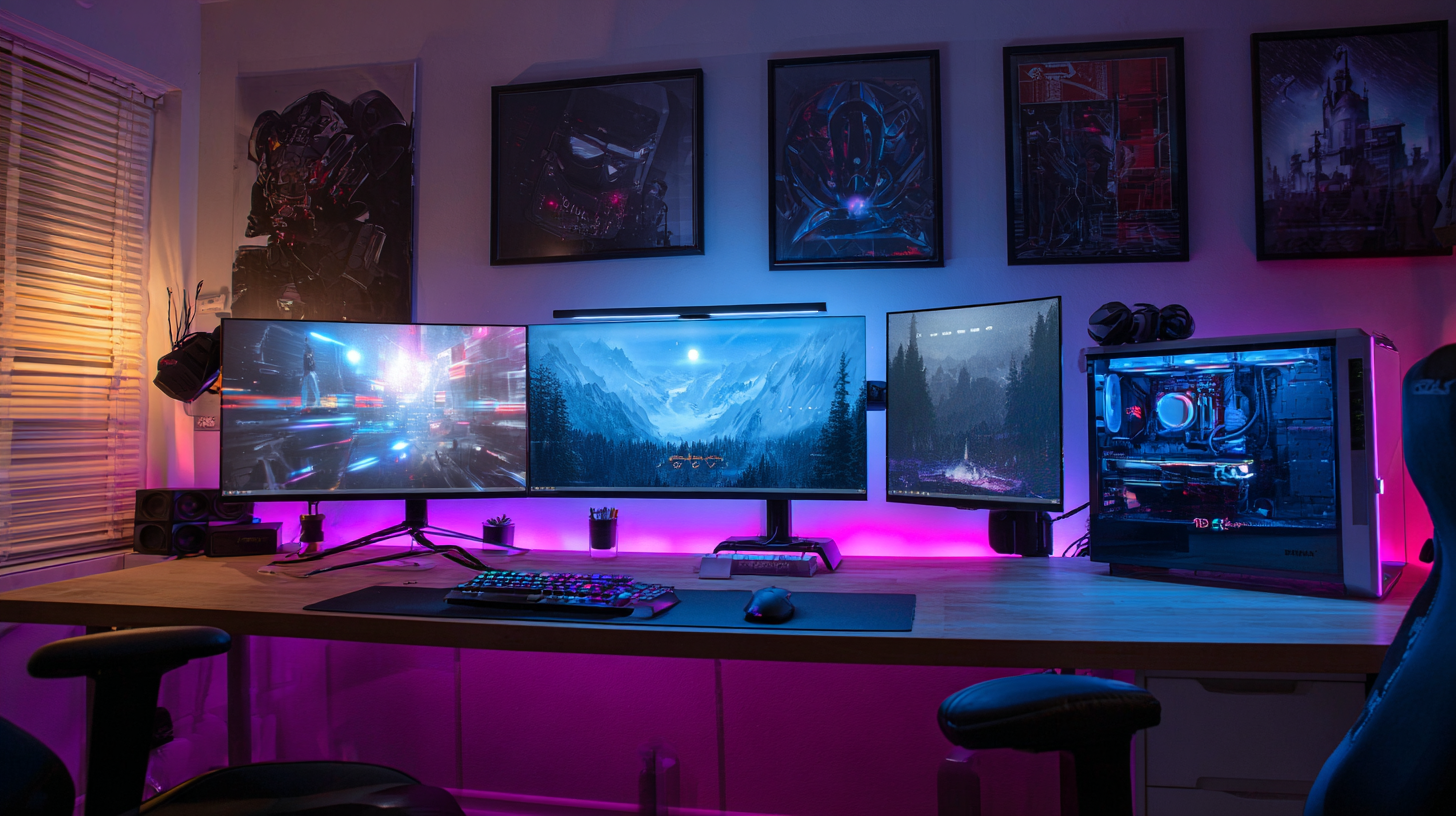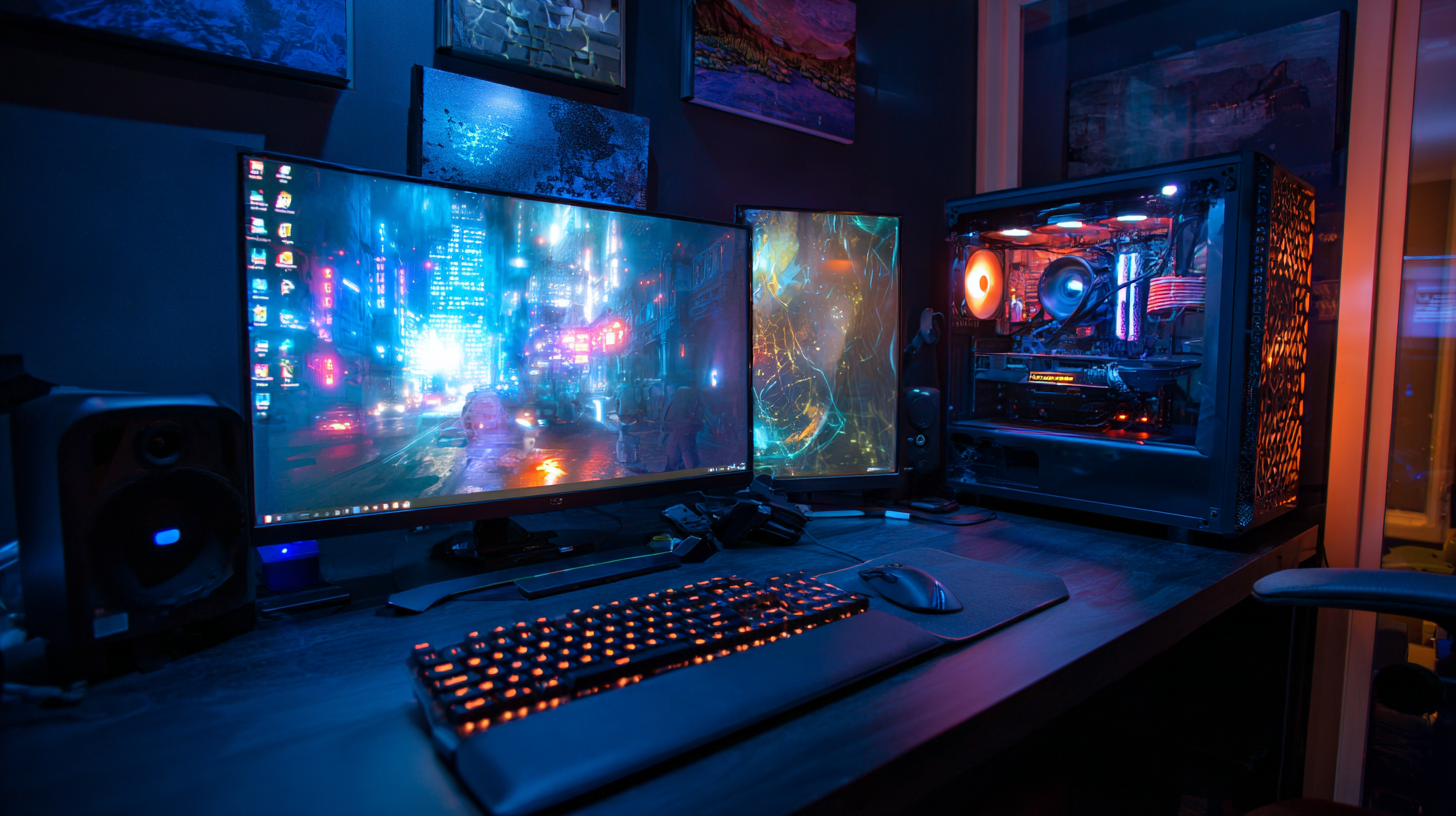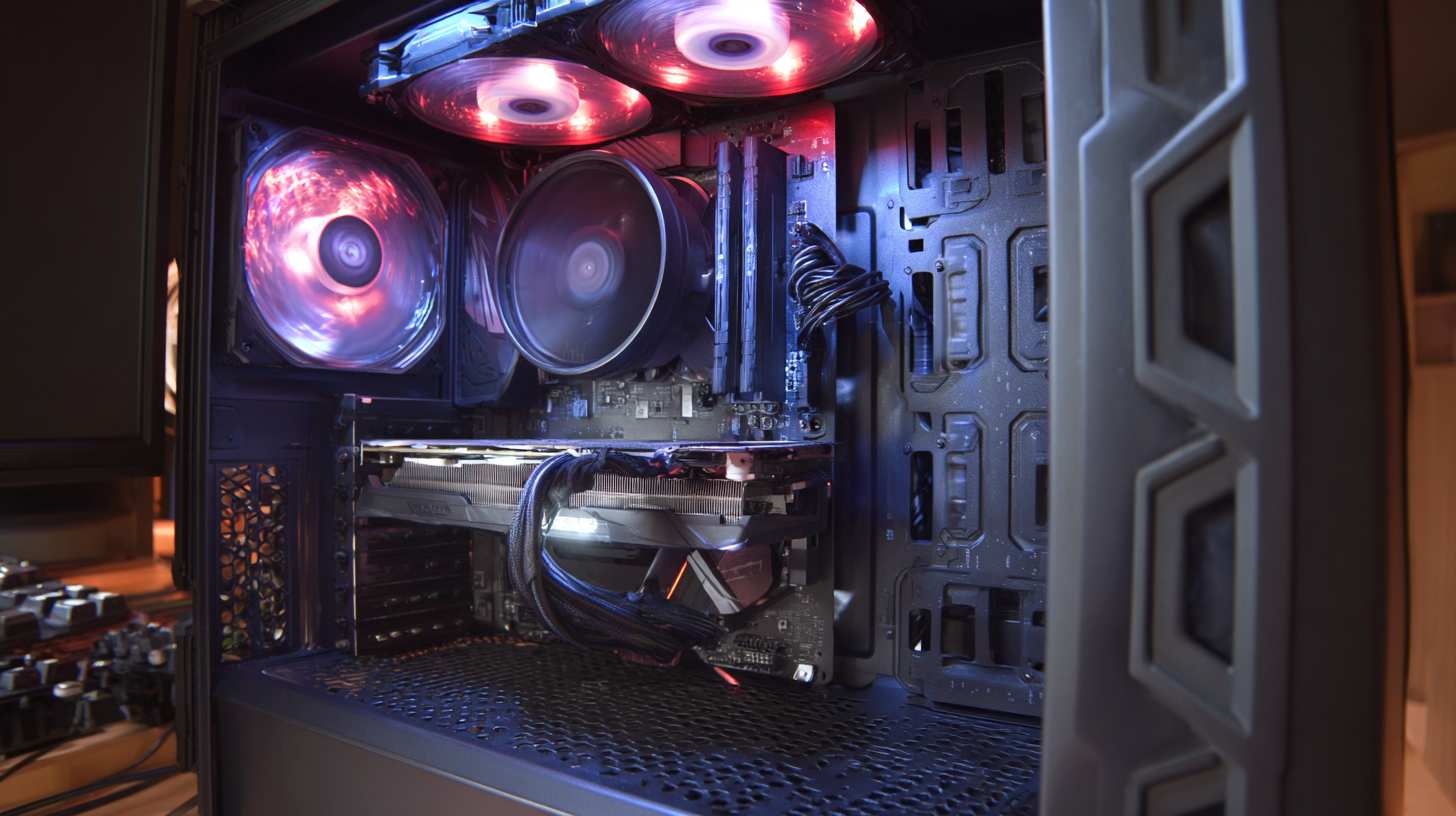Leave Your Message
- Phone
- E-mail
- Whatsapp


In the ever-evolving landscape of technology, the demand for high-performance Gaming PCs is reaching new heights in 2023. As gamers seek the best solutions for immersive experiences, identifying the top manufacturers becomes crucial. This task, however, is not merely about brand popularity; it involves navigating the intricate world of industry certifications, import/export regulations, and product quality assurance. Understanding how these elements interplay will empower consumers to make informed decisions when selecting their gaming rig. In this blog, we will explore how to effectively assess and identify the leading manufacturers in the Gaming PC sector, ensuring that gamers invest in systems that not only deliver exceptional performance but also comply with the highest industry standards.

When searching for top manufacturers in the gaming PC market, it's essential to identify the key features that set the best apart. According to the latest report by IDC, the global gaming PC market is projected to grow by 8.5% annually, highlighting the increasing demand for high-performance systems. Leading manufacturers distinguish themselves through superior hardware specifications, including the latest GPU technologies such as NVIDIA's RTX 4000 series, which is known for enhancing real-time ray tracing and AI performance in gaming.
Another critical aspect to consider is customer support services provided by these manufacturers. Research indicates that 72% of consumers prioritize responsive technical support when purchasing gaming PCs. Look for companies that offer extensive warranties and 24/7 customer service. Furthermore, reviewing user-generated content, such as forum discussions and expert reviews, can provide insights into how manufacturers handle product issues and updates.
Tips:
When comparing performance metrics of leading gaming PCs in 2023, several key factors come to the forefront:
GPU performance,
CPU capabilities, and overall benchmarking scores.
According to the latest data from Jon Peddie Research, the gaming PC market is projected to grow by
8.5% annually, driven largely by advancements in
graphics technology and consumer demand for high-performance gaming experiences.
Benchmark tests, such as those conducted by TechSpot, indicate that top-tier systems featuring NVIDIA's
RTX 40 series GPUs outperform previous generations by over
30% in both 4K and VR gaming scenarios.
Another critical performance metric is the CPU's core count and clock speed. Analysis from
PassMark Software reveals that gaming PCs equipped with
AMD's Ryzen 7000 series processors have surpassed Intel's 12th Gen CPUs in
multi-core performance,
providing gamers with enhanced processing power for demanding applications.
Systems utilizing these CPUs consistently score higher in benchmarks across popular gaming titles,
confirming their place among the best options for gamers looking to
build or upgrade their PCs in 2023.
Ultimately, these metrics not only reflect the technology's progress but also serve as vital indicators
for identifying the top manufacturers delivering the best gaming solutions.
In 2023, identifying reliable gaming PC manufacturers is crucial for gamers who seek high-performance solutions. A recent report by IDC highlights that the gaming PC market is projected to grow by 12% annually, driven by the increasing demand for immersive gaming experiences. Brands that consistently deliver quality and performance, such as ASUS, MSI, and Alienware, have garnered strong reputations for their robust customer support and innovative technology. For instance, ASUS's ROG series has been recognized for its exceptional build quality, securing a 92% satisfaction rating among users according to a 2023 survey conducted by TechRadar.
Evaluating reliability and reputation involves more than just customer reviews; it also includes examining industry accolades and warranty offerings. According to a 2023 consumer report by Consumer Electronics Association (CEA), leading manufacturers like Corsair and Dell offer warranties that exceed the industry average, with a commitment to customer service that reflects positively on their brands. Moreover, an analysis from J.D. Power indicates that companies with higher reliability ratings often invest significantly in research and development, ensuring their gaming PCs not only meet current demands but also anticipate future gaming needs. Crafting a gaming PC experience that adheres to these standards is essential for manufacturers to maintain their competitive edge.
When choosing a top manufacturer for gaming PCs in 2023, understanding customer support and warranty options is crucial. Solid customer support can be a game changer when troubleshooting hardware issues or obtaining guidance on system upgrades. Many reputable manufacturers provide multi-channel support, including phone, chat, and email, ensuring gamers can quickly reach a knowledgeable representative. Additionally, the availability of online resources such as forums, FAQs, and instructional videos can empower customers to resolve minor issues independently, making the gaming experience more enjoyable.

Warranty options are another pivotal consideration. A robust warranty demonstrates a manufacturer's confidence in their products and provides peace of mind for the consumer. Look for manufacturers that offer comprehensive coverage, including parts and labor, for at least one year, with options to extend the warranty for additional years. Some manufacturers also include accidental damage protection, which can save gamers from hefty repair costs. By evaluating customer support services and warranty options, gamers can ensure they select a manufacturer that not only delivers high-quality equipment but also stands by its commitments, fostering a more reliable gaming experience.
As we dive into 2023, the gaming PC manufacturing landscape is shaped by key emerging trends that are pivotal for gamers and manufacturers alike. One major trend is the rise of advanced semiconductor technologies. With significant investments in chip manufacturing, particularly in regions ramping up production capabilities, we can expect to see more powerful and efficient components entering the market. This development will not only enhance gaming performance but also promote sustainability through energy-efficient technologies, which are becoming a priority for many manufacturers.

Another noteworthy trend is the increasing customizability of gaming PCs. Gamers today are more inclined toward personalized setups that cater to their specific gaming needs and aesthetic preferences. This demand is prompting manufacturers to expand their product lines and offer a wider range of modular components, creating an ecosystem where consumers have greater control over their gaming experience. Additionally, the importance of distribution channels continues to evolve, with online retail becoming a central hub for reaching consumers effectively—a shift that will likely influence both pricing strategies and the availability of the latest gaming technologies as manufacturers aim to keep pace with rapidly changing consumer demands.
